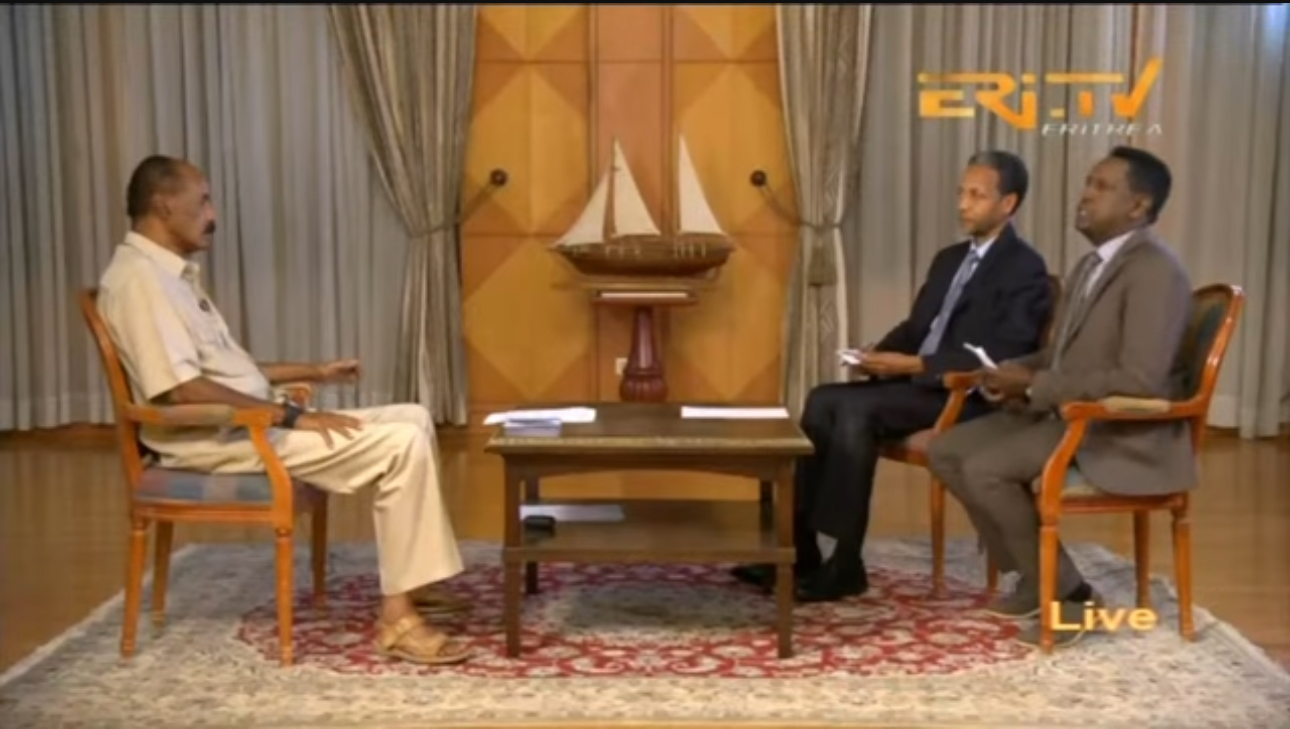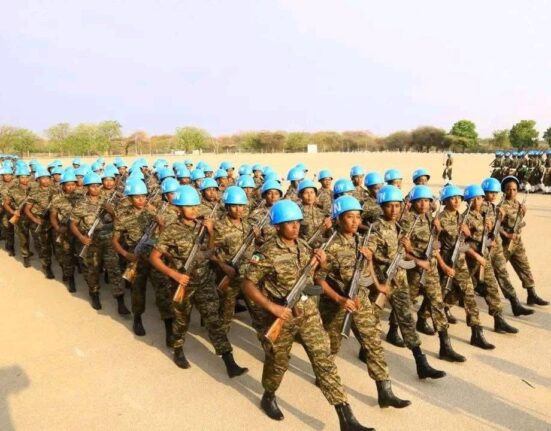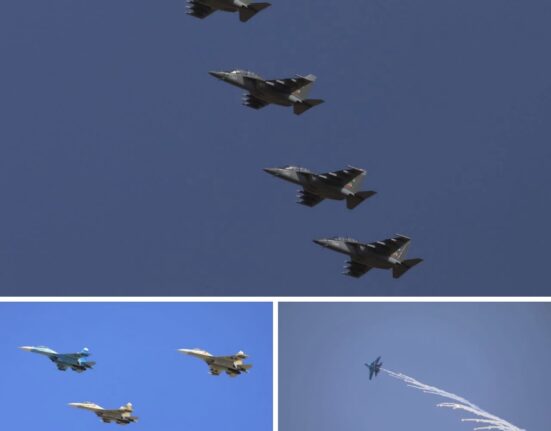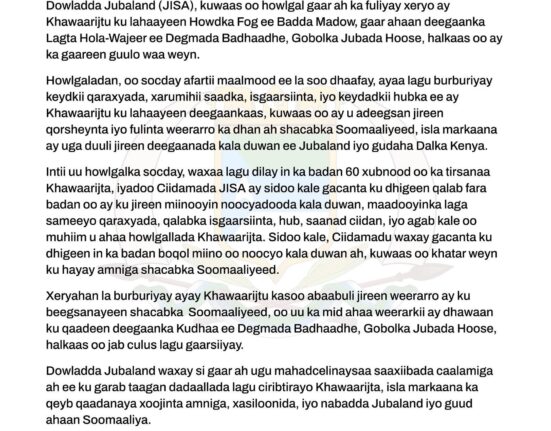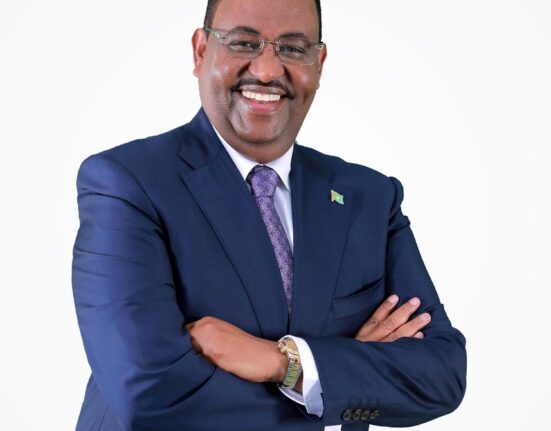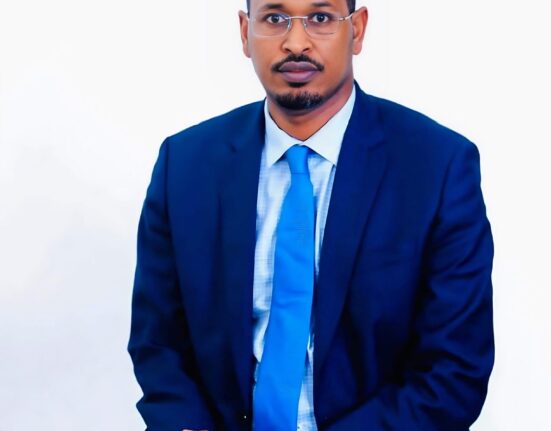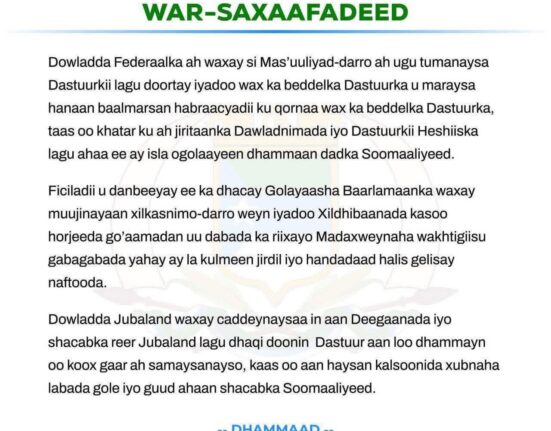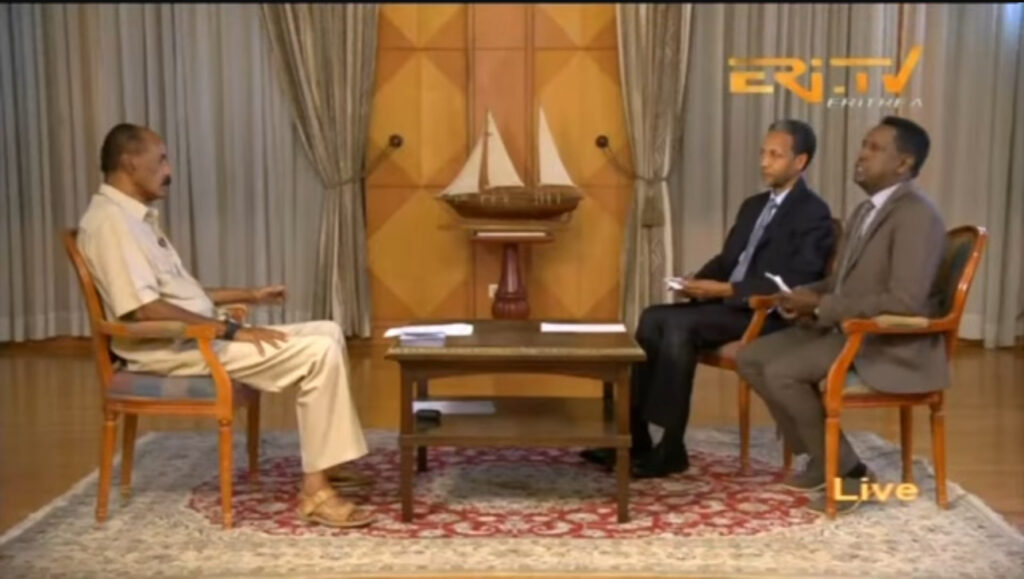
Date: July 22, 2025
In a recent ERI-TV interview aired on July 19, Eritrean President Isaias Afwerki launched an unsubstantiated tirade against the United Arab Emirates (UAE), accusing the Gulf nation of attempting to control key Red Sea and Indian Ocean ports—including the Suez Canal, Jeddah, Hudaydah, Massawa, Assab, Djibouti, Berbera, Mogadishu, Lamu, Mombasa, and Dar-es-Salaam. He described the alleged plan as “the plan of a crazy person” and blamed the UAE for pouring “countless sums of money” into Ethiopia to “win decisions,” contributing to what he called a regional crisis.
However, analysts and observers have criticized Afwerki’s claims as inflammatory, baseless, and hypocritical—given his own longstanding ties to foreign authoritarian regimes, most notably the Kingdom of Saudi Arabia under Crown Prince Mohammed bin Salman (MBS). Isaias’s government has quietly aligned with MBS in regional maneuvers that have helped destabilize Yemen and Sudan—two nations now facing humanitarian disasters due in part to Saudi and Emirati interference.
Double Standards and Regional Destabilization
While Isaias accuses the UAE of meddling in Ethiopia and East Africa, his own hands are far from clean. Eritrea allowed Saudi and Emirati military forces to use its port of Assab as a base for their intervention in Yemen’s civil war. This alliance contributed to widespread destruction, famine, and the deaths of tens of thousands of civilians. Isaias was not only complicit but directly benefited from this arrangement, including receiving military aid and economic investment from the Gulf powers.
Furthermore, Eritrea’s involvement in Sudanese politics—especially through covert support for factions in the Sudanese civil conflict—further exposes the duplicity behind Isaias’s posturing. Eritrea’s destabilizing behavior in the Horn has long been noted by international human rights observers.
Targeting Ethiopia: A Familiar Pattern
Isaias’s remarks about Ethiopia are also nothing new. Over the years, he has repeatedly used inflammatory language toward Ethiopian governments—especially when political developments in Addis Ababa threaten to sideline Eritrea’s influence. The current government of Ethiopia, under Prime Minister Abiy Ahmed, has sought to balance regional interests and promote internal unity, an agenda that apparently frustrates the Eritrean strongman.
Claiming without evidence that the UAE is “buying decisions” in Ethiopia and other countries like Kenya, Djibouti, Somaliland, and Yemen serves as nothing more than a smokescreen for his own diminishing relevance in regional diplomacy. His statements aim to discredit any form of progress or autonomy among his neighbors, while offering no factual backing for such sweeping accusations.
A Hateful Tone Against Ethiopia and Its People
Most disturbing in the interview was the barely concealed hostility toward Ethiopia as a whole. By painting Ethiopia as a country “for sale,” Isaias not only disrespects the sovereignty of its institutions but insults the Ethiopian people, suggesting they are easily manipulated by foreign money. This rhetoric is not only divisive but also dangerous, as it fuels suspicion and undermines regional cooperation at a time when collective stability is desperately needed.
Conclusion: Isaias Must Be Held Accountable
President Isaias Afwerki’s recent interview is yet another example of his pattern of misinformation, regional blame-shifting, and veiled hostility—particularly toward Ethiopia. His own alliance with Saudi Arabia’s Mohammed bin Salman, a key architect of the Yemen and Sudan crises, contradicts his posture as a defender of African sovereignty.
Rather than promoting peace and development, Isaias is stoking division and exporting chaos. The region—and the world—must recognize this pattern and reject his baseless, self-serving narratives.
For reference:
- ERI-TV Interview, July 19, 2025: Watch here
- UN Panel of Experts Report on Eritrean Role in Yemen (2019-2022)
- Amnesty International Reports on Human Rights Abuses in Eritrea


